With the playoffs officially upon us, and a perpetual desire to play out every future scenario in our heads, let’s take some time to go in the other direction and celebrate some of the past postseason’s best games. Looking back to 1998, the first year I closely watched the NFL, I’ll give a quick recap of each postseason’s singular best thriller (with an honorable mention of course), starting with the oldest:
1998: Wild Card Round, 49ers 30, Packers 27 (“The Catch 2.0”)
In the last year before instant replay, it was a Jerry Rice fumble that wasn’t called that enabled the 49ers’ game-winning drive to continue and led to “The Catch 2.0.” In a back-and-forth affair between two 90’s powerhouses, Brett Favre connected with Antonio Freeman from 15 yards out with 1:55 remaining to give Green Bay a 27-23 advantage. Following Rice’s gaffe that wasn’t, Steve Young hit Terrell Owens over the middle despite five Packers being in the area, and despite a big hit, Owens hung on for the game-winning 25-yard score with just three seconds remaining. The win by San Francisco was made even more significant by the fact that the team had lost to Green Bay in each of the previous three postseasons.
1999 – Super Bowl XXXIV, Rams 23, Titans 16 (“The Longest Yard”)
Full disclosure, this was the first Super Bowl I watched start to finish, and I loved every minute of it. For a while, it was admittedly one-sided, with the Rams’ defense stifling the Titans even as their high-powered offense sputtered, struggling to find their rhythm amidst the relentless pressure. But once Tennessee came alive, the game transformed into an electric spectacle that kept me on the edge of my seat. A 16-point deficit was officially erased when Al Del Greco, showing remarkable composure, tied the score on a 43-yard field goal with just 2:12 remaining, igniting the hopes of Titans’ fans everywhere and setting up the ultimate backyard dream for Kurt Warner to cap off his fairytale season. Instead of a methodical drive for the win, in a surprising twist of fate, Warner struck gold by connecting with Isaac Bruce on a stunning 73-yard bomb, surging ahead to a 23-16 lead and leaving Tennessee with a mere 1:54 to orchestrate a tie. Steve McNair, displaying admirable tenacity and leadership, valiantly led his team from their own 12-yard line all the way down the field, seamlessly navigating the defense with precise throws and determined runs, ultimately setting up one final, heart-stopping play from the Rams’ 10-yard line with just six seconds to go. In a moment that seemed to pause time, McNair found Kevin Dyson over the middle, but linebacker Mike Jones, demonstrating remarkable instincts and athleticism, pulled Dyson down a yard shy of the goal line as the clock struck zero, sealing the deal and granting the Rams their first-ever Super Bowl win, a moment that would be etched in history for all who witnessed it.
(Honorable mention: Wild Card Round, Titans 22, Bills 16 (aka “The Music City Miracle”): This game is mostly remembered for its ending, as a controversial lateral on a kickoff resulted in a 75-yard, game-winning touchdown by Kevin Dyson. Buffalo’s heartbreak was only made worse by the fact that this would be its last playoff appearance until 2017.)
2000: Wild Card Round, Dolphins 23, Colts 17, OT
I’m excited to write about this one, because I was there on a cold day in Miami (by Florida standards, at least). In a game that personified the late 90’s/early 2000’s Dolphins, they gave their fans a thrill in the wild card round before laying an egg in the divisional round. Lamar Smith, in a renaissance first season in Miami, carried the load and more this day, toting the rock an incredible 40 times for 209 yards. Miami trailed 14-0 at halftime before chipping away, and forced OT with a touchdown pass in the final minute. Mike Vanderjagt’s career postseason struggles truly began on this day when he missed a would-be, game-winning 49-yard field goal in overtime, which set the stage for Smith’s heroics. Amazingly, this is still Miami’s last playoff win to date.
(Honorable mention: Wild Card Round, Saints 31, Rams 28. The first playoff win in Saints history nearly became a catastrophe when the defending Super Bowl champion Rams cut a 31-7 deficit down to three points, but Az-Zahir Hakim muffed a punt with less than two minutes remaining to seal St. Louis’ fate.)
2001: Divisional Round, Patriots 16, Raiders 13 (OT) (“The Tuck Rule”)
As great as Super Bowl XXXVI turned out to be, it never would have happened if not for this snowstorm classic. Tom Brady’s first career postseason start had an inauspicious beginning, with New England failing to reach the end zone until the fourth quarter when they trailed 13-3. Brady ran for a touchdown to cut the deficit to three, and the defense stopped a late third-and-one to force a punt. Troy Brown fumbled the return, but Larry Izzo recovered, setting up one of the most controversial plays in NFL history. Charles Woodson, Brady’s teammate at Michigan, forced what looked like a game-clinching fumble. But we then learned what the “Tuck Rule” was, and Adam Vinatieri made it stand with an incredible line-drive 45-yard field goal in a virtual avalanche to send the game to OT. From there, the Pats drove right down the field to set up a chip-shot field goal and advance to the AFC Championship Game.
(Honorable mention: Super Bowl XXXVI, Patriots 20, Rams 17. Of course. The Rams erased a 17-3 deficit before Brady drove his team for the win (despite John Madden’s suggestion to simply play for overtime) and Vinatieri drilled a 48-yard field goal to give New England its first Super Bowl win.)
2002: Wild Card Round, 49ers 39, Giants 38
The goat (not GOAT) of this game, sadly, was the Giants’ newly-signed long-snapper, Trey Junkin, but really it should have been the Giants’ defense. A 38-14 lead was not enough for Big Blue, as San Francisco stormed back with 25 unanswered points. Jeff Garcia connected with Tai Streets for a 13-yard touchdown with a minute remaining to put the Niners up by one, but a short kickoff and strong return put New York at its own 48. Kerry Collins drove the G-Men into field goal range, setting up a 41-yard try by Matt Bryant. But the try never occurred, as Junkin’s snap rolled to holder Matt Allen, who could have spiked the ball to give his team another kick as it was third down. Instead, Allen heaved the ball downfield to lineman Rich Seubert, and Seubert was interfered with. But despite the flag, another penalty was called on Seubert for being downfield illegally — even though the NFL later admitted that Seubert had, in fact, reported as eligible.
(Honorable mention: Divisional Round, Titans 34, Steelers 31, OT (aka “The Music City Mulligan”). A game that ended in controversy was not devoid of excitement. Pittsburgh erased a 14-point deficit and the teams ended up in overtime, where Tennessee appeared to catch a massive break after kicker Joe Nedney shanked a 26-yard game-winning field goal attempt. But a running into the kicker penalty on Pittsburgh, to which later Nedney quipped “when I’m done playing, I might try acting,” gave the Titans a second chance, and Nedney’s second kick pushed the Titans into the AFC Championship Game.)
2003: Divisional Round, Panthers 29, Rams 23 (2 OT) (“X-Clown”)
No matter how good you thought Super Bowl XXXVIII was, this game was better. The Cardiac Cats saved their best act for the divisional round, when they survived multiple brushes with death to advance to their second-ever NFC Championship Game. Leading 23-12 midway through the fourth, the Panthers missed a field goal, then watched the Rams score a TD and subsequent two-point conversion. It got worse, as Rams KICKER Jeff Wilkins recovered the onside kick. But Rams head coach Mike Martz, normally the ever-aggressive type, played for the tying field goal after Marc Bulger led the Rams to the red zone down by three. The Panthers missed another field goal in OT after a delay of game pushed the first attempt (which was good) back five yards. But the Rams also came up just short from 53 yards out, and Ricky Manning Jr. intercepted Bulger with the Rams on the cusp of field goal range to set up “X-Clown,” which saw Steve Smith torch the Rams defense for a 69-yard score on the first play of double overtime.
(Honorable mention: Super Bowl XXXVIII, Patriots 32, Panthers 29). To be fair, this was an exceptional postseason with many great games to choose from. But the Pats and Cats combined for 37 fourth quarter points in a game that featured scoreless first and third quarters, and even though Carolina gave New England its first deficit since Week 12 when it went up 22-21, the Pats took the lead, 29-22, on a TD pass to linebacker (yes, linebacker) Mike Vrabel. Carolina tied it with just over a minute to go on a TD pass to Ricky Proehl (who oddly enough had done the same thing with the Rams two years prior), but Adam Vinatieri booted a 41-yard game-winner to give New England its second title in three years.)
2004: Divisional Round, Steelers 20, Jets 17 (OT)
2004 did not give us many classic postseason tilts, with really the only two standout games both involving the Jets (who became the first team in history with consecutive postseason overtime games). Ben Roethlisberger’s first career playoff start was a rocky one, with the rookie QB throwing for just 181 yards with a TD and two INTs. The Jets tied it on a Santana Moss 75-yard punt return late in the first half, and led 17-10 until Roethlisberger connected with Hines Ward with six minutes to play. The Jets would then miss two chances to advance to the AFC Championship Game as kicker Doug Brien hit the crossbar on a 47-yard attempt with two minutes to play, then after the defense intercepted Roethlisberger, he yanked a 43-yarder on the final play of regulation. The Jets would punt on the opening drive of overtime, and the Steelers drove 14 plays to set up Jeff Reed’s 33-yard field goal to win it.
(Honorable mention: Wild Card round, Jets 20, Chargers 17 (OT): Drew Brees’ playoff debut featured a game-tying TD pass with 11 seconds left in regulation after a roughing-the-passer penalty on Jets linebacker Eric Barton, and ironically, a missed field goal by San Diego’s Nate Kaeding in OT that allowed the Jets to drive down for a Brien 28-yard chip shot with five seconds left in the first overtime.)
2005: Divisional Round, Steelers 21, Colts 18
This game will be remembered for a lot of things, but primarily “The Tackle” by Ben Roethlisberger on a would-be fumble return touchdown by Nick Harper. In a cruel twist of fate, Harper, who perhaps shouldn’t have played given that he sustained a stab wound in his leg during a domestic dispute with his wife the night prior, cut inside instead of towards the sidelines after Jerome Bettis fumbled at the goal-line. The Steelers could have iced the game with a score, but a 21-3 lead that had been trimmed to 21-18 (with the help of a controversial overturned interception by Troy Polamalu with five-and-a-half minutes to play) looked for all the world like it would disappear completely. Instead, Roethlisberger was able to turn and bring Harper down, which ultimately led to a missed field goal by Mike Vanderjagt that sealed the Colts’ fate after earning the No. 1 seed. Pittsburgh would go on to capture its first Super Bowl title since 1979, while the Colts were left to wonder what if (although they would bounce back and win the Super Bowl a year later).
(Honorable mention: Divisional Round, Panthers 29, Bears 21: In a postseason that featured a lot of blowouts (eight of the 11 games were decided by 10 points or more), the Panthers earned their second NFC Championship Game berth in three years with a hard-fought win in Chicago on the strength of 12 catches for 218 yards and two touchdowns by Steve Smith.)
2006: AFC Championship Game, Patriots 38, Colts 34
An absolute no-brainer. One of the best postseason games ever, this contest featured an 18-point comeback (then the largest of all-time in a title game and still tied for the top comeback), three ties (two in the second-half), two fumble recovery touchdowns by offensive linemen and one career-defining, game-winning touchdown drive by an all-time great who had yet to take down his nemesis.
A pick-six by Asante Samuel in the second quarter looked like a possible death-blow as New England went ahead 21-3, but a field goal before the half and two touchdowns in the first 11 minutes of the third quarter knotted the game at 21-21. The teams would then trade a touchdown and a field goal before Stephen Gostkowski put the Patriots ahead, 34-31, with just under four minutes to play. The Pats had a chance to seal the game on a 3rd-and-4 with two-and-a-half minutes left, but Bob Sanders broke up the pass, and Manning went on to lead a seven-play, 80-yard drive, capped by a three-yard touchdown run by Joseph Addai with exactly a minute to go.
Marlin Jackson intercepted Brady in Colts territory to seal the win for Indy, propelling the Colts to their first Super Bowl since moving to Indianapolis.
(Honorable mention: Divisional Round, Patriots 24, Chargers 21: The sad end to Marty Schottenheimer’s Chargers tenure saw the Bolts blown an 11-point lead, with the most gut-wrenching moment being Marlon McCree’s fumble after what could have been a game-sealing interception with just six minutes to play after Troy Brown stripped the defensive back. Down three in the final minute, the Bolts drove into field goal range, but Nate Kaeding’s 54-yard kick fell short, ending San Diego’s dream 14-2 season.)
2007: Super Bowl XLII, Giants 17, Patriots 14 (“The Helmet Catch”)
Again, this feels like a no-brainer, a Manning brother coming back against the Patriots. In what is still considered one of the all-time great playoff upsets, Big Blue completed an incredible postseason run by ending the Pats’ quest for a perfect season with a late touchdown drive culminated by a Plaxico Burress 13-yard touchdown reception from Super Bowl MVP Eli Manning with 35 seconds left.
Using a ferocious pass-rush that generated five sacks of Tom Brady, New York held a New England team that scored 589 regular-season points to just 14 on football’s biggest stage, and got a major assist from “the Helmet Catch” by unheralded receiver David Tyree on the team’s final drive.
After losing their season-opener on the road to Dallas, the G-Men won 11 straight road games, including four in the playoffs as a No. 5 seed.
(Honorable mention: Wild Card Round, Jaguars 31, Steelers 29: After blowing a 28-10 fourth-quarter lead, the Jaguars rallied on the heels of a 32-yard run on fourth-and-two just after the two-minute warning by quarterback David Garrard to set up Josh Scobee’s game-winning 25-yard field goal with 37 seconds to play.)
2008: Super Bowl XLIII, Steelers 27, Cardinals 23
This Super Bowl, like Super Bowl XXXVIII, is one of the more underrated ones in recent memory. Pittsburgh seemed to be in cruise control up 20-7 early in the fourth quarter, having seemingly broken Arizona’s back with James Harrison’s 100-yard interception return for a touchdown as time expired in the first half.
But Kurt Warner and Larry Fitzgerald would wake up, producing two touchdowns sandwiched around a holding call on Pittsburgh for a safety, with the second TD strike going for 64 yards and putting the Cardinals ahead, 23-20, with 2:37 to play.
Ben Roethlisberger responded with an eight-play, 78-yard touchdown drive, capped by Super Bowl MVP Santonio Holmes’ six-yard toe-tap catch in the back corner of the end zone. Pittsburgh’s defense then forced a Warner fumble near midfield to secure the franchise’s sixth Super Bowl championship.
(Honorable mention: NFC Championship Game, Cardinals 32, Eagles 25: Arizona became the first No. 4 seed to host a conference title game and stormed out to a 24-6 lead before the Eagles struck back with 19 straight points. However, Warner drove the Cards 78 yards in 14 plays for a TD and the defense stopped Philly on downs to produce the franchise’s first-ever Super Bowl berth.)
2009: NFC Championship Game, Saints 31, Vikings 28 (OT)
Despite having one of the craziest shootouts in the history of the NFL, let alone the playoffs, to choose from, I have to tout this game as the gem of the ’09 playoffs. In a game that Vikings fans still lament to this day (along with the 1998 NFC championship game), five turnovers ultimately doomed what was an otherwise dominant effort by the club.
The numbers were staggeringly in favor of the Vikings: 31-15 in first downs, 475-257 in total yardage, 36:49-27:56 in time of possession, 32 penalty yards to 88 by New Orleans, 7-12 on third-down conversions, and no sacks allowed. By all accounts, Minnesota should have won this football game.
But there was just something special about this 2009 Saints team, and by producing five takeaways, it did just enough to stave off what looked like a game-winning drive by Minnesota when soon-to-be Super Bowl hero Tracy Porter picked off Brett Favre in field goal range to send the game to overtime.
The Vikings would never touch the football in the extra period, as Drew Brees and Co. marched 39 yards in 10 plays to set up Garrett Hartley’s game-winning 40-yard field goal that sent the Saints to their first-ever Super Bowl.
(Honorable mention: Wild Card round, Cardinals 51, Packers 45 (OT): Don’t worry, I couldn’t totally leave this game off the list. Aaron Rodgers’ first-career playoff game could not have gone any better for him personally: 423 yards passing with four touchdown throws to just one interception. The problem was, Kurt Warner was just as good with 379 yards and five TD passes. Despite rallying from 21 points down to force overtime, the game was — go figure — decided by a defensive touchdown, as a corner blitz by Mike Adams forced a Rodgers fumble that was returned 17 yards for a walk-off touchdown by linebacker Karlos Dansby.)

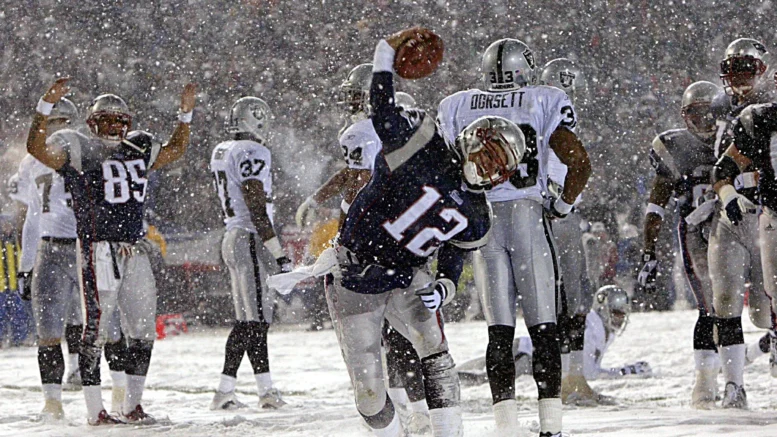
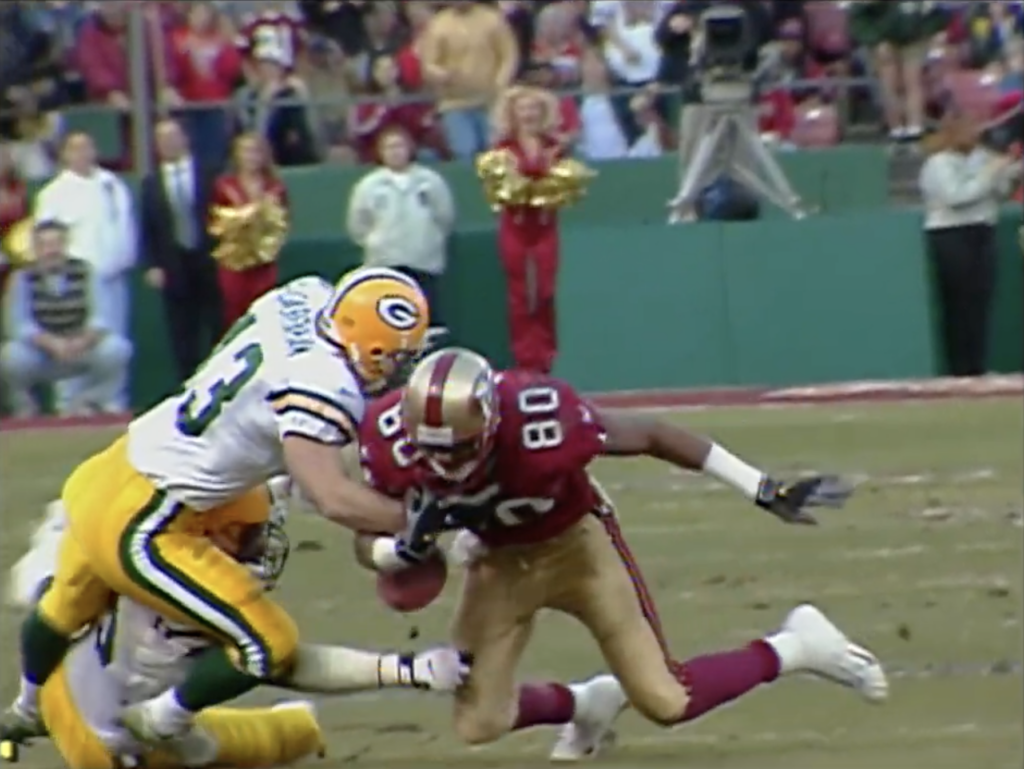
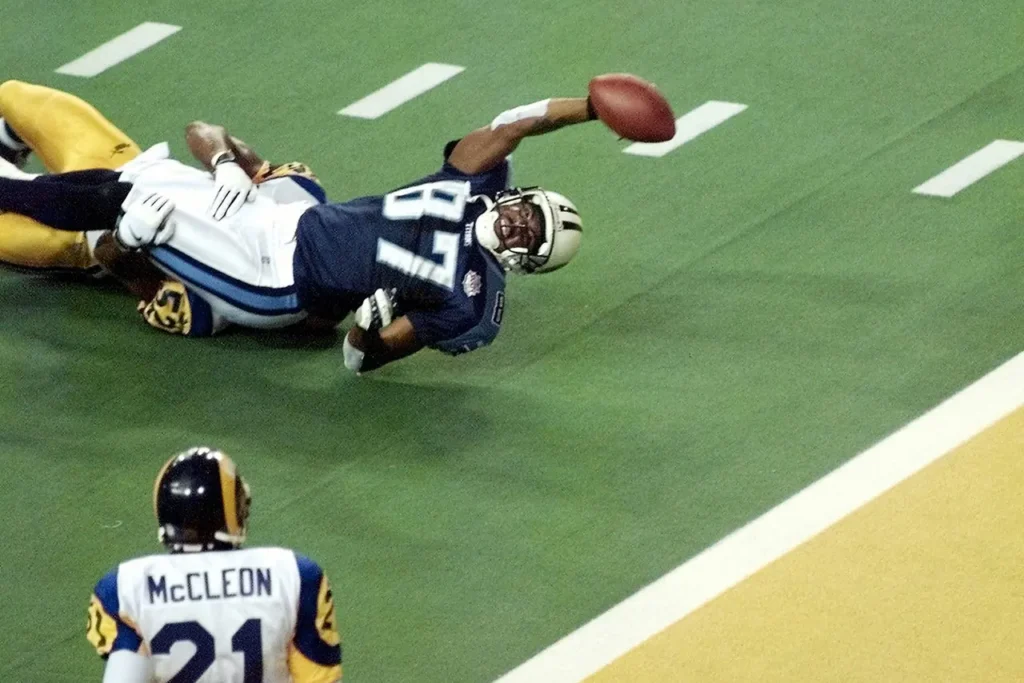
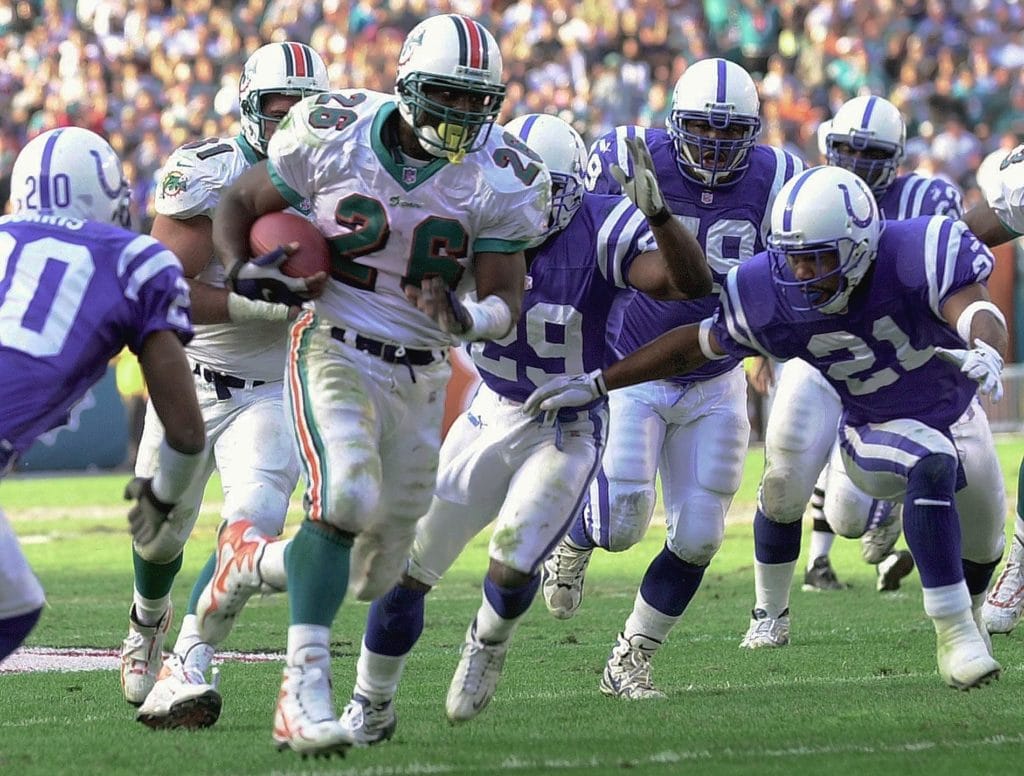
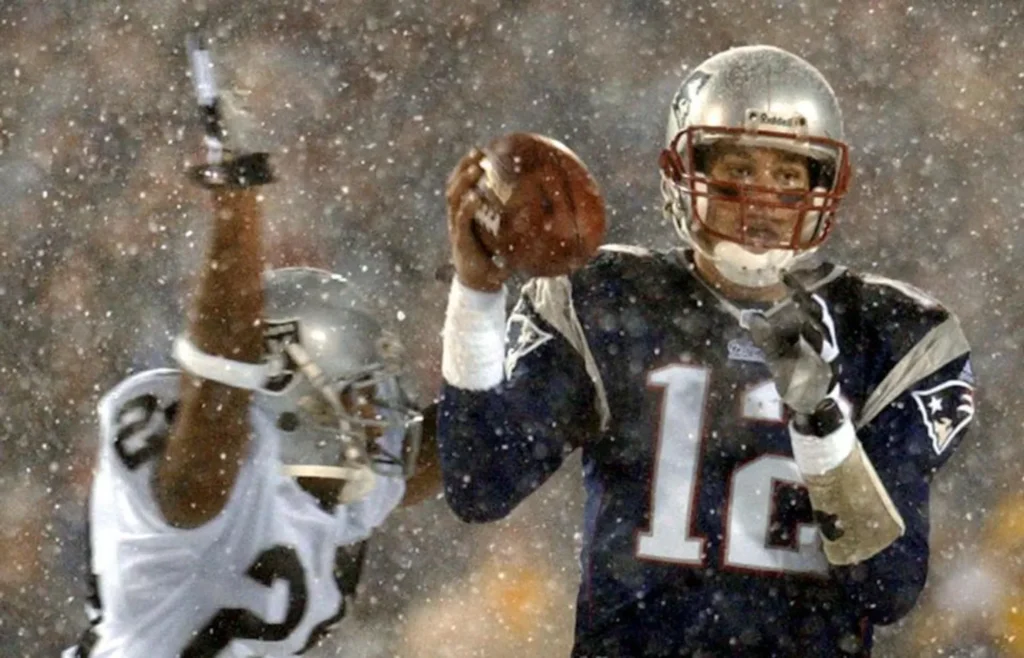
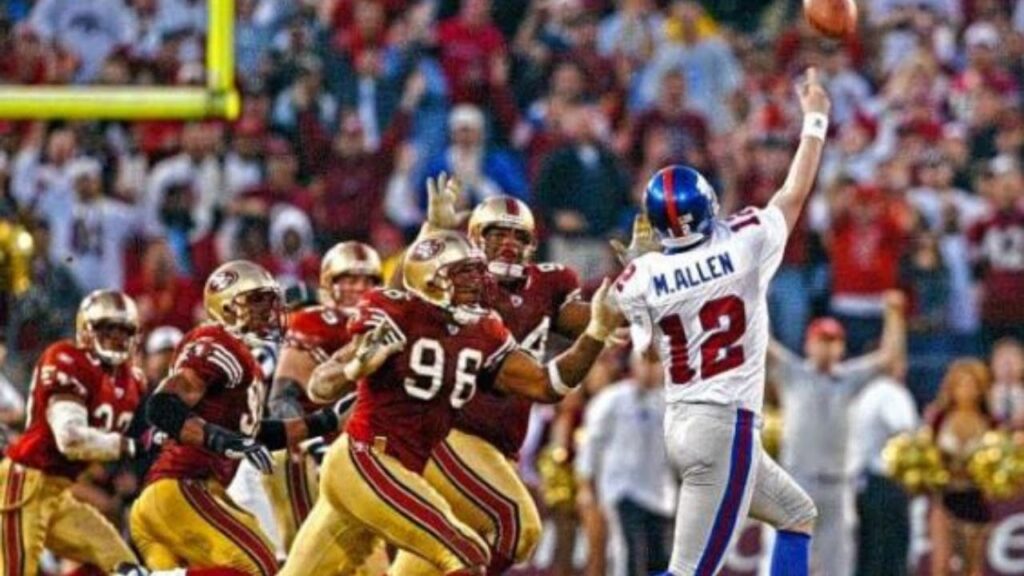
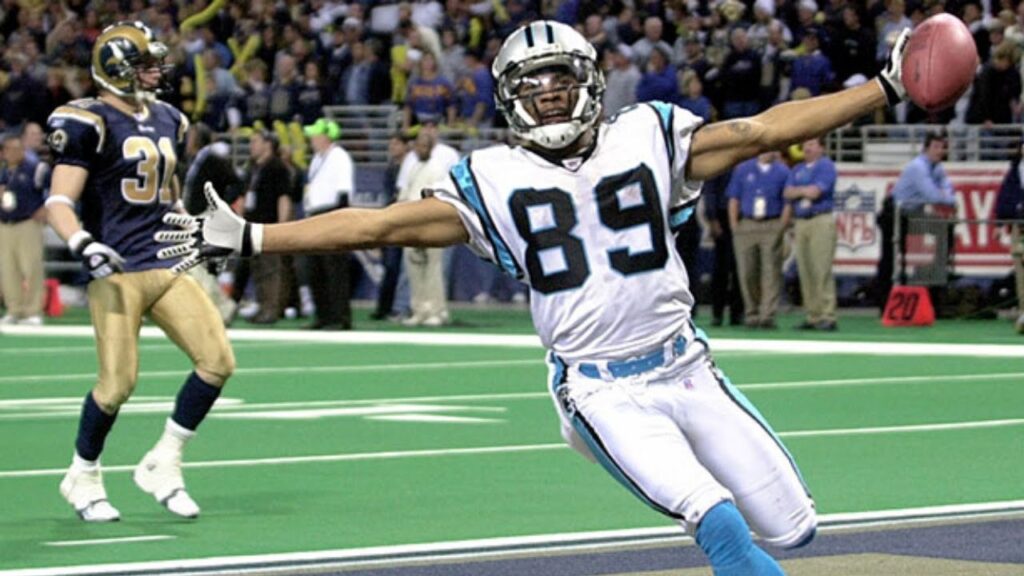
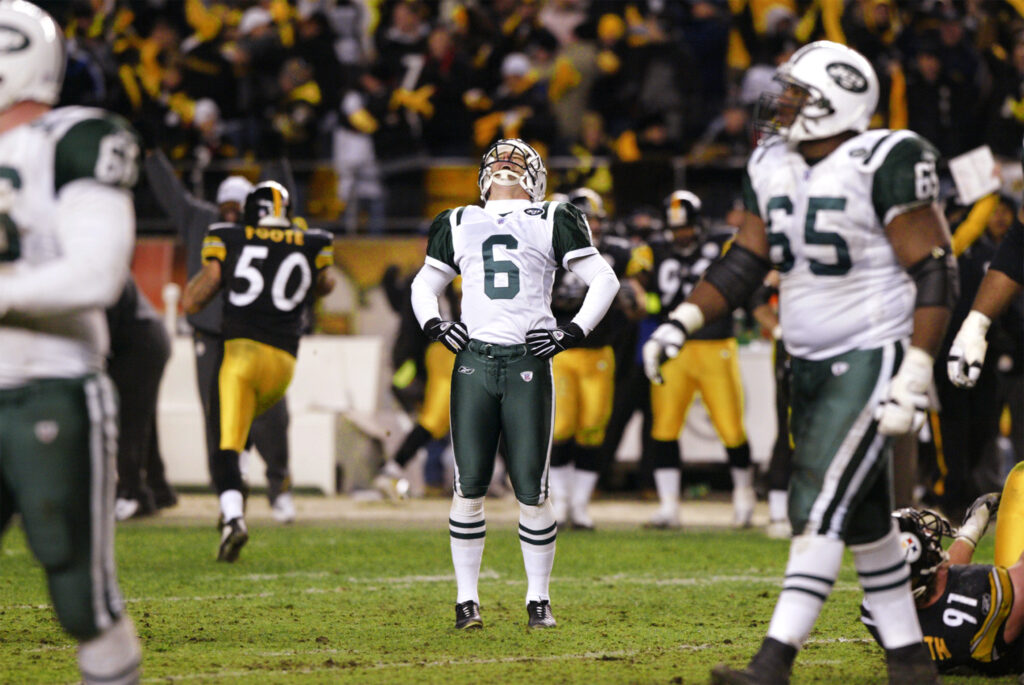
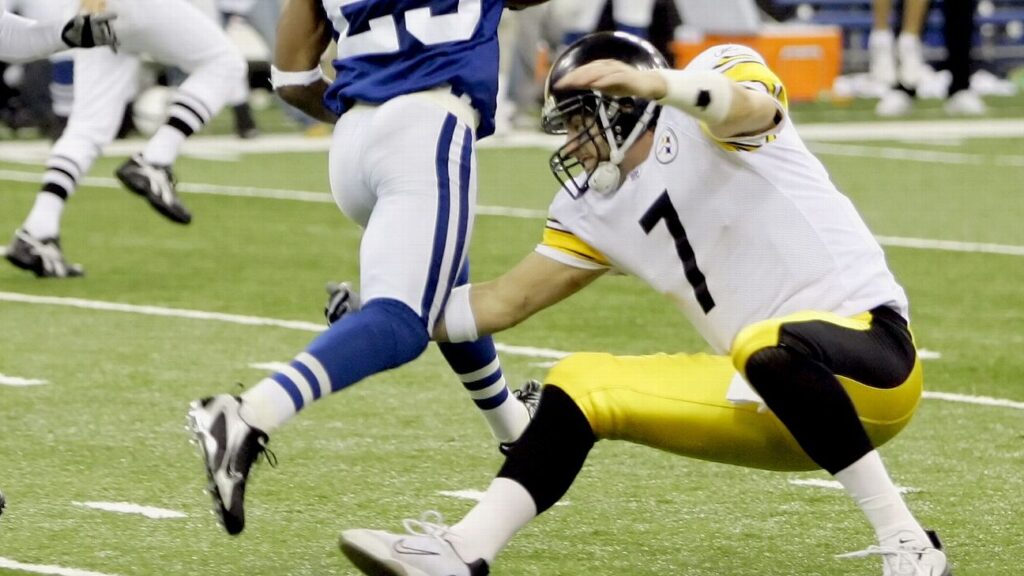
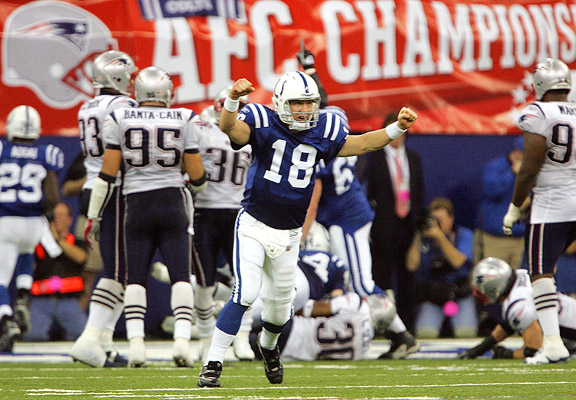
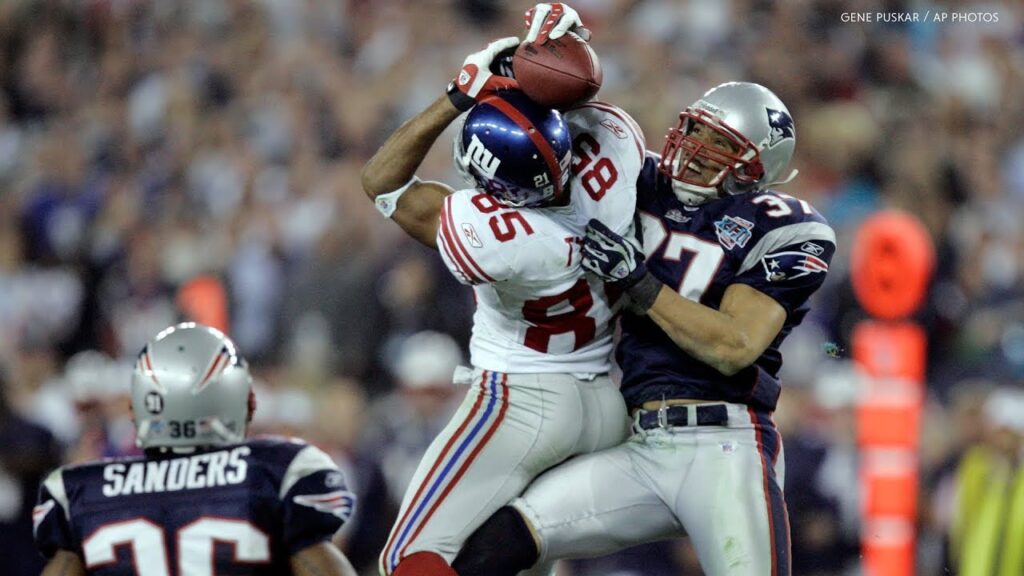
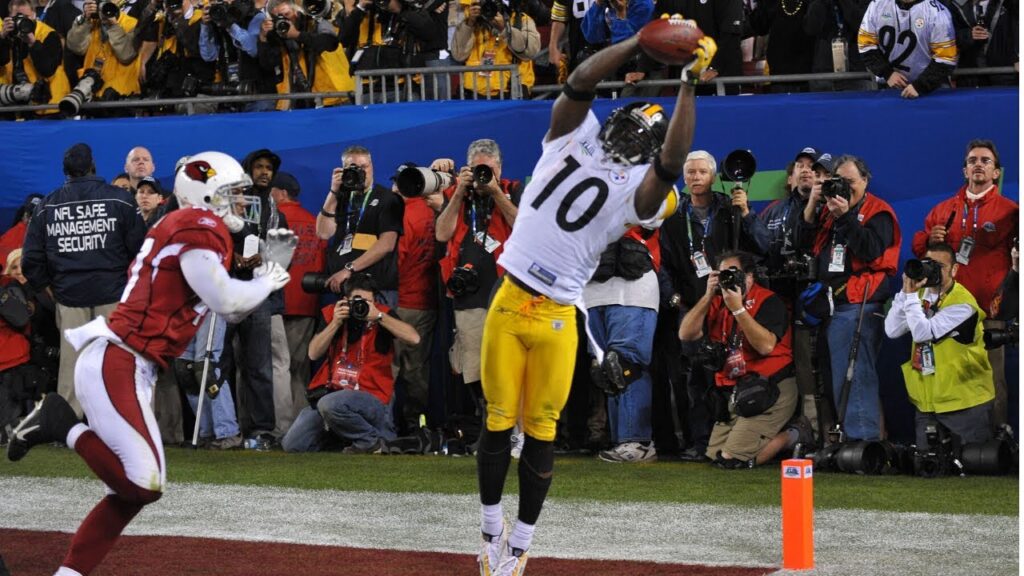
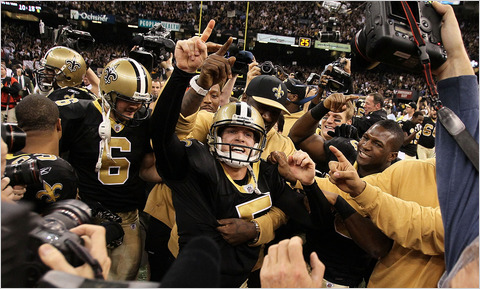
Be the first to comment on "What Are the Best NFL Postseason Games by Year?"